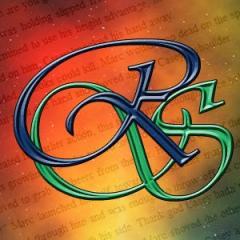Writing Tip Writing Tip: Said-Bookisms
Today we have another very informative writing tip from Cia! Enjoy!!!
Said-bookisms
I'm betting you have NO idea what a said-bookism is, do you? I know I didn't; I do know what the term means though, in a general sense. A said-bookism is a speech tag other than said or asked. Quite often they are used to describe the speech or the tone.
A few examples:
He laughed
She shrieked
They intoned
He smiled
Now, these are really common in usage, yet frowned upon more and more. Something so many articles I've read by editors and publishers expound on constantly is 'Show, don't tell!'. Said and asked are so common in writing that most readers don't see them, which is why they say the use of them is the least obtrusive to the story telling itself. The complete elimination of said-bookisms is not necessary, but they should be used sparingly. I'll give 2 examples, one with and one without said-bookisms.
Amais looked up from his book. Respectful of the library rules, he whispered, "I'm try to study." Lucan flicked his book shut and stole it from his desk.
"You're always studying," he sneered, "you're a geek."
Amais' fists clenched in his lap. Lucan had been taunting him for months. "Just give me back my book," he ground out.
"Maybe I will," Lucan taunted, holding it out and then pulling it away when Amais reached for it. "Nope, too slow, geek."
Now, without the said-bookisms:
Amais looked up from his book. Respectful of the library rules, he kept his voice quiet. "I'm trying to study," he said. Lucan flicked his book shut and stole it from his desk.
"You're always studying." His lip was curled as he rolled his eyes. "You're a geek."
Amais' fists clenched in his lap. Lucan had been taunting him for months. It was hard to keep his temper and not yell, but somehow he managed it with clenched teeth. "Just give me back my book."
"Maybe I will." His face smoothed out into a smile. He held out the book, one eyebrow raised when Amais hesitated to reach for it. The second he did, Lucan yanked it away with a snicker. "Nope, too slow, geek!"
While the difference isn't great, we get a greater visual from the physical cues shown in the second example. Instead of saying someone shouted angrily, you can mention that the person has their hands clenched and spine rigid-a common stance to associate with someone who is angry. Instead of saying 'he joked' you can mention the sparkle in his eyes or the wide grin on the guy's face.
With those small changes, the reader will still get the idea that the character is mad or acting silly from the dialogue and the physical cue, but they will get to 'see' it, not just get told that the character is acting/feeling that way. So, the next time you write, examine your use of said-bookisms. Where could you use the advice of 'show, not tell' to the best effect to reduce the amount of them in your writing?
Thank you Cia! So, what about you? Any tips that you would like to see in the blog?
-
 6
6






0 Comments
Recommended Comments
There are no comments to display.
Create an account or sign in to comment
You need to be a member in order to leave a comment
Create an account
Sign up for a new account in our community. It's easy!
Register a new accountSign in
Already have an account? Sign in here.
Sign In Now